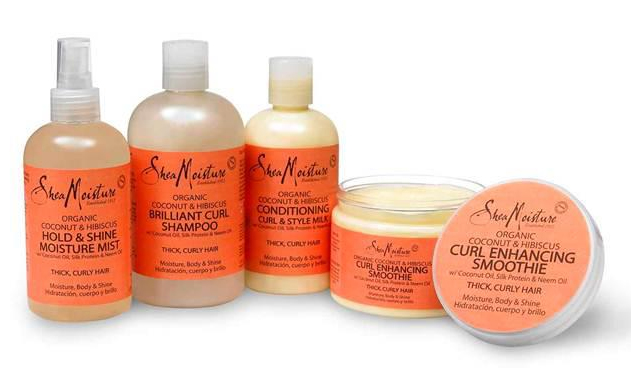
You’ve probably heard of black haircare company Shea Moisture’s controversial ad campaign, released on Monday. Their ad – “break free from hair hate” – featured close to zero representations of black women, instead, opting for a blonde-haired white woman who claims she “didn’t know what to do with her hair” and a redhead who talks about the shame she carried over being ginger.
For those of you who have never heard of Shea Moisture before, let me give you the brief backstory of the products that saved a whole harem of black girls. The company was founded in 90s Harlem by two Liberian refugees named Nyema Tubman and Richelieu Dennis, alongside Dennis’ mother, Mary. The products (namely shampoo, conditioner and skin care) were inspired by Dennis’ grandmother who used to sell shea butter at a village market in Sierra Leone.
At the time of its inception, kinky-curly hair was neglected from mainstream businesses, but Shea Moisture was where we could all go to find products that truly catered to our diverse hair texture. As Dennis once said: “Today the buying power and influence of the emerging multicultural and ethnic consumer is undeniable.” However over the past 25 years it seems like their brand ethic has changed, and like most other big companies, Shea Moisture has joined the ranks of those continuing to deny the economic power that is behind black people’s influence.
Now, I understand that Shea Moisture wanted to reach a wider audience and there is nothing wrong with that. The problem is that they did this pushing aside their original audience, who have supported them for many years. The problem is changing their formula to cater to white women who probably won’t even buy their products.
So how did this happen exactly? For a company that was built with inclusivity for ethnic minorities as their selling point, what changed? And why did no one speak up about the lack of representation in this advert before it was released? Back in September 2015, Bain Capital – yes, the company owned by Mitt Romney – became a minority stake holder in Sundial Brands LLC. Although Richelieu Dennis remains the CEO of the company, it surely cannot be coincidence that changes began to take place after the merger.
“They’ve refused to give a voice to the women who are constantly dehumanised because of the coarser texture of their hair”
So. The Vice President of brand strategy for Shea Moisture is a white woman – Christine A. Keihm. The innovation and marketing manager for Shea Moisture is a white woman – Katie Rogers. Instead of hiring black women, Shea Moisture has made white women responsible for something they do not understand, and a part of me isn’t surprised.
The light-skinned black woman at the forefront of this ad campaign is Sayria Jade. It’s not her fault that her long curly locks are what is deemed “acceptable” in the black community, but the fact that Shea Moisture decided that this was the portrayal that they wanted to use when discussing “hair hate” is frustrating. They’ve refused to acknowledge the hair hierarchy that darker-skinned women with kinkier hair have to navigate. They’ve refused to give a voice to the women who are constantly dehumanised because of the coarser texture of their hair. And it’s these women who have supported Shea Moisture the longest.
Some of you are probably wondering why this is a big deal. But hair politics is a real thing and Shea Moisture knows that. Hair isn’t just hair for black women. Building a campaign on “hair hate” and then featuring no women who actually have to deal with discrimination on a much wider scale seems insensitive to me. There is a difference between disliking your hair, and the world disliking your hair. Something that Shea Moisture failed to comment on in this advert. It was very “All Lives Matter”.
Since the ad campaign was released, Shea Moisture has apologised. Unfortunately, it just doesn’t seem genuine. The trust between this company and their black supporters has been dismantled with no hope of reconciliation. With the rise of alternatives for kinky/curly hair emerging in the marketplace, it makes it simpler for black women to boycott Shea Moisture. Social media, and in particular blogging and vlogging, has made it possible for black women to find these specific products in a way that we wouldn’t have been able to 10 years ago. Shea Moisture – you’ve been cancelled.









